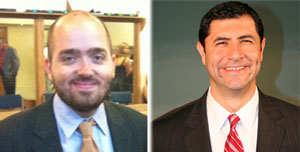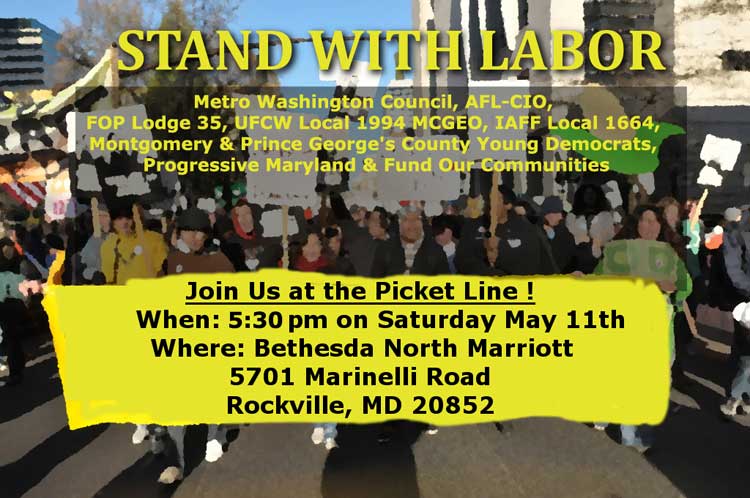Check out Part I, Part II, and Part III of this four part series on the contretemps at MCDCC.
The Election
In the June Democratic Primary, voters will choose the new members of the Montgomery County Democratic Central Committee (MCDCC). There are no challengers to the self-named unity slate formed after the serious challenge from labor and the Young Democrats in Districts 17 and 18. But other candidates are running in the remaining districts and for the at-large seats.
Perhaps most interestingly, Brian Anleu is trying to unseat incumbent Arthur Edmonds in District 14. Edmonds has fallen out with the D14 state legislators who consequently support Anleu. Should be one of the more interesting of these invariably little heralded contests for seats on MCDCC.
Two non-slate candidates, Anis Ahmed and Kris Verma, are seeking seats in District 15. Ahmed received no votes when he sought the appointment to the delegate vacancy created by Brian Feldman’s move to the Senate. The City Paper recently ran a long piece with the subtitle “Why did D.C. let a disbarred lawyer serve as a workers’ comp judge?” about Verma.
In District 19, Harold Diamond won as an insurgent candidate in 2010 and is seeking reelection despite his failure to win a slot on the slate. As I explained in Part III, Diamond’s performance on the ballot questions advisory committee left many unhappy:
He had the nice sounding but dreadful in practice idea of populating the committee with essentially anyone who volunteered. Not the best means to recruit a group of volunteers who are particularly sensible, representative, or sensitive to the variety of interests and trends within the party. The meeting of the precinct officials also left several key issues until very late in the evening and Diamond repeatedly tried to steer matters in the direction he favored.
In District 20, Ed Kimmel, an attorney specializing in bankruptcy law and frequent political photographer, did not interview for the slate but has filed for MCDCC. Similarly, Loretta Jean Garcia, a Bethesda attorney, has filed for a District 16 seat.
Three non-slate candidates are seeking at-large seats. Steve Boliek has more money than most MCDCC candidates to support his bid. Natalia Farrar went through the Emerge program that promotes leadership by women. Pavel Sukhobok is the final candidate not on the ticket who has filed for an MCDCC at-large seat.
The Future
So labor spearheaded by MCGEO and the Young Democrats have engineered at least a partial takeover of MCDCC. Now that they have the keys to the car, where will they drive it?
The key problem is that there is a desire to regenerate MCDCC but no clear plan to do so or what it means. There will undoubtedly be degrees of suspicion between old and new members. Almina Khoraiwala is tipped to be the new MCDCC chair and will have her work cut out to establish her authority and a new direction for MCDCC. Fortunately, she’s talented and is as likely as anyone to have the intelligence and focus to achieve these goals.
The new MCDCC’s first steps should be to put one together. It needs to focus less on policy but the less sexy hard work of politics–the precinct organization and GOTV–that is the staple of party organizations. Of course, policy motives are often powerful ways to achieve these goals.
The danger is that many of the new members have expressed interest in policy rather than party building. Will they be ready to roll up their sleeves and not just develop renovation plans but carry them out so that MCDCC becomes a more vital organization? Will they also prove to be the reformers as advertised? Or will they simply serve as the arm of the labor unions?
Change to the membership of MCDCC is coming. Whether it will lead to real change at MCDCC remains to be seen. In other words, I look forward to seeing if they can walk the walk.



